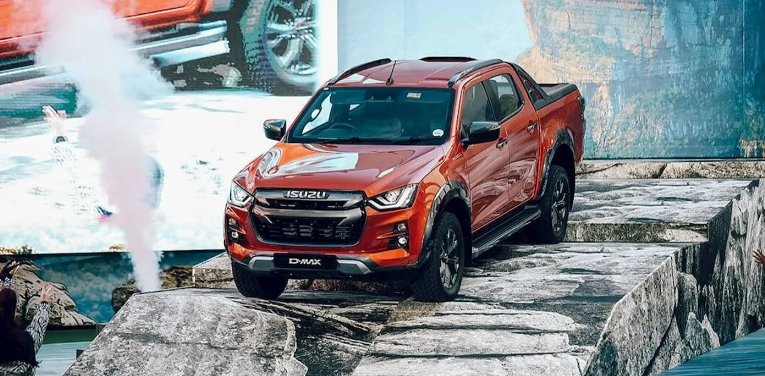At the unveiling of the refreshed D-Max truck in Bangkok, Minami said, “Isuzu is actively taking efforts to realize a carbon-neutral society. Going forward, Isuzu plans to produce a BEV (Battery Electric Vehicle) pickup truck in Thailand.”
The Japanese automaker’s leader added that it will first introduce the electric pickup in Europe “and then gradually roll out by meeting market needs.”
Thailand is Isuzu’s largest pickup truck market. However, the popular D-Max is sold in over 100 countries and regions, including Asia, Europe, the Middle East, Africa, Central America, and South America.
Last year, Isuzu sold around 340,000 pickups, with roughly 180,000 of them (45%) in Thailand.
In the UK, only one other pickup is currently on the market, the Maxus T90 EV, with an 88.5 kWh battery capacity and 330 km (205 miles) of WLTP range.

Japanese electric truck launching in Europe, Thailand
Although no specs or other details were revealed, it’s likely to be an electric version of the D-Max. Like the T90 EV, Isuzu will likely swap the gas engine for an electric motor and battery.
Rather than a full-size truck like the Ford F-150 Lightning or Rivian R1T, the Japanese automaker’s electric pickup is expected to be closer to the Ford Maverick.
Isuzu will face several competitors in Thailand, including Geely’s Radar R6 electric pickup. Deemed “China’s first pure electric outdoor lifestyle brand,” Radar shipped its first batch of EV trucks to Thailand in July.
The Radar R6 is based on the SEA platform with three battery options offering up to 392 miles (632 km) of range. In China, the R6 is highly affordable, with prices starting at RMB 178,800 ($24,500).
Toyota also revealed an electric version of its Hilux pickup in Thailand last December, its fourth-highest production region behind the US, Japan, and China.
Will Isuzu’s electric truck make its way to the US? I wouldn’t get my hopes up. The Japanese automaker already pulled out of the US market in 2009 after GM discontinued the platforms it used in partnership.
Although the D-Max is popular in other regions, an electric version could charge up the Japanese automaker’s sales.
Isuzu already cut its full-year outlook in Thailand by 18% after LCV sales fell 26% in the region in the most recent quarter. The automaker cited “slumping demand” and a “deteriorating financial environment.”
Meanwhile, electric vehicles continue gaining momentum in the region. Thailand accounted for nearly 79% of all EVs sold in Southeast Asia. By 2030, Thailand aims for 30% of its 2.5 million annual vehicle production to be electric.